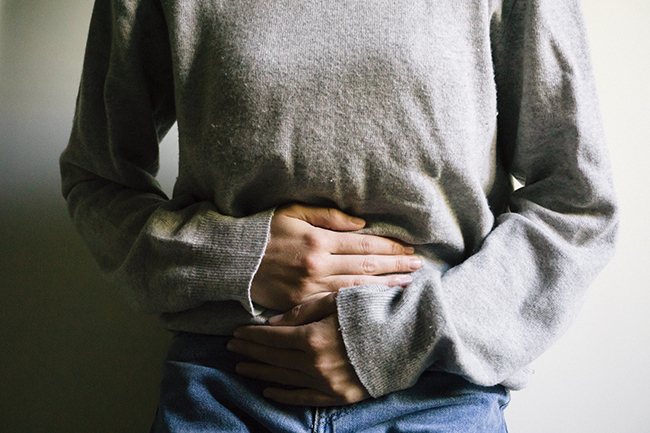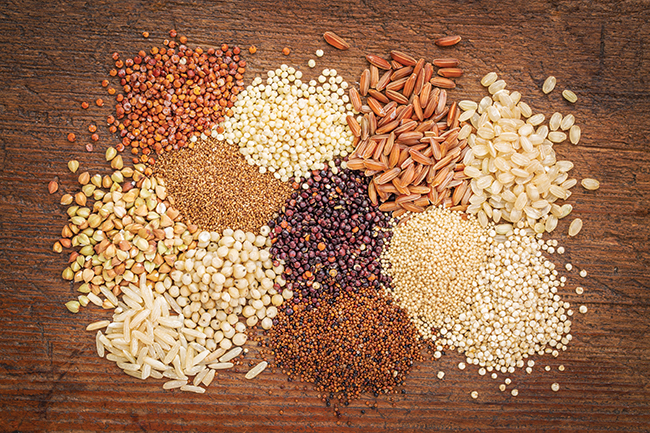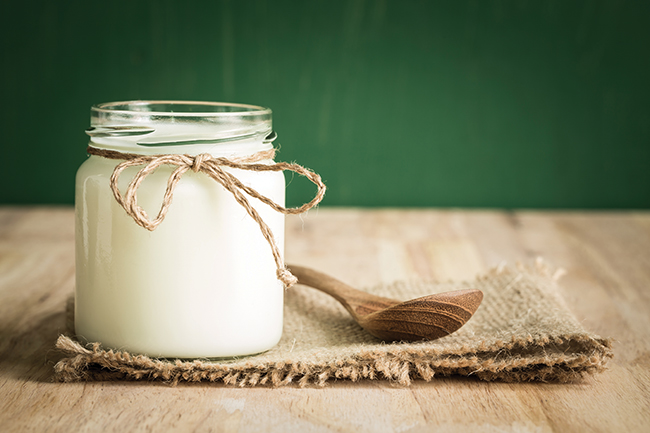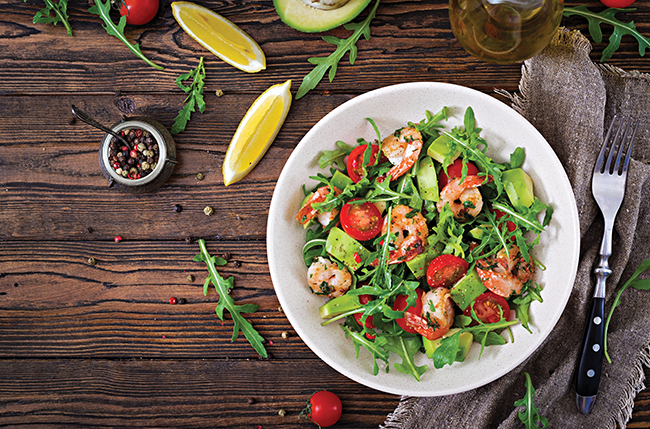Dietitian and spokesperson for the British Dietetic Association Chloe Miles examines the pros and cons of going gluten-free to deal with your IBS…

You can’t be diagnosed on symptoms alone as some of these symptoms are also present in other conditions such as Coeliac Disease and Inflammatory Bowel Disease. It is important not to self-diagnose and to see the GP so they can do the appropriate tests. It’s also important not to change your diet before seeing the GP as you need to be eating gluten in more than one meal every day for at least 6 weeks prior to your blood test for the coeliac screen to be accurate.
What is IBS?
IBS is a condition that can affect our gut.
Symptoms may include:
- Stomach pain
- Bloating
- Flatulence
- Constipation
- Diarrhoea
What causes IBS?
Unfortunately it isn’t clear at the moment. There may be triggers for the condition such as an infection, a course of antibiotics or stress, but for some people the symptoms can suddenly appear.
Can following a gluten-free diet help people with Irritable Bowel Syndrome?
There is no single treatment for IBS and seeing a dietitian can be helpful to discuss options. For some people dietary changes may be beneficial, but for others it may make little difference. People with IBS often report feeling better on a gluten-free diet, however it’s unclear whether that is due to the reduction of gluten, which is the protein part of wheat, rye and barley, or due to the reduction of other things found in these products such as Fructans. Fructans are a poorly absorbed carbohydrate and restricting them may be beneficial in most people with IBS.

Gluten-free diets aren’t generally recommended as a treatment for IBS, unless this has been advised specifically for you by a dietitian. More research is going on at the moment around non-coeliac gluten sensitivity. Often professionals use this term when symptoms similar to those found in coeliac disease are experienced, but there are no associated antibodies and no damage to the lining of the gut; unlike in coeliac disease. It is, however, still an area of debate as to whether gluten causes the sensitivity or the other parts of products.
Are there any dangers of following a gluten-free diet for IBS?
Those following a gluten-free diet may have lower intakes of wholegrains, which are thought to have benefits for our heart health. If omitting gluten, ensure you are consuming enough wholegrains by including wholegrain rice, gluten-free wholegrain oats, wholegrain corn, quinoa or sorghum. We also don’t know the long-term effect the diet may have on our gut bacteria. Some products are higher in fat, sugar and salt, so make sure that you read the food labels.
Where can I get support?
In most areas your GP should be able to refer you to a dietitian for support. There are, also, registered dietitians that work privately that can be found at freelancedietitians.org. The IBS Network is the UK’s national charity and more information can be found at theibsnetwork.org.

What other things CAN help manage IBS?
Yoga: One recent study showed that doing yoga twice a week for 12 weeks improved symptoms in 82% of people, despite no dietary changes.
Gut-Directed Hypnotherapy: This may reduce symptoms by 70-80% and improvements seem to be maintained in the long-term.
Probiotics: These are thought to be safe to use and may be effective. Specific recommendations can’t be made at the moment as to which strain or dose is best, and some probiotics seem to work on a specific symptom and may not work in everyone. It is best to trial one probiotic at a time for 4 weeks and, if it doesn’t work, then consider swapping to an alternative probiotic.

Stress Management: Stress and anxiety can be a major trigger for some people and the symptoms of IBS can cause stress and anxiety in themselves. If you are struggling long-term, then speak with your GP who may suggest strategies such as Cognitive Behavioural Therapy (CBT).
Dietary changes: Eating regular meals, reducing caffeine, limiting alcohol intake, avoiding fatty foods and ensuring adequate fluid intake can work for some people.
Low FODMAP diet: FODMAPs stands for Fermentable, Oligosaccharides, Disaccharides, Monosaccharides and Polyols. These groups of carbohydrates are poorly absorbed and may increase symptoms for those with IBS. It should only be done with the support of a dietitian as it can be restrictive, but it has been shown to be effective for up to 70% of people with IBS. It involves restricting foods high in FODMAPs for 4-8 weeks, then systematically reintroducing to identify sensitivities. It doesn’t completely cure IBS, but it may make symptoms more manageable.

FODMAP High Foods
- Beans & Pulses
- Wheat products
- Onion
- Garlic
- Apples
- Cauliflower
